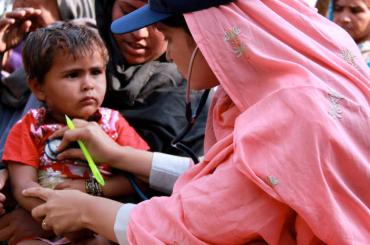

Michael Callen
Associate Professor of Economics, LSE
Michael Callen is an associate professor of economics in the economics department at the LSE. He is a co-director of the state capabilities programme at the International Growth Centre and a research associate at the Centre for Economic Policy Research. He completed his PhD in economics at the University of California, San Diego and his BSc at the London School of Economics. His research focuses on development economics, political economy, and behavioral economics. He works primarily in Afghanistan, Nepal, and Pakistan.
Michael Callen is on the Editorial Board of VoxDev.
Recent work by Michael Callen
-

Building state capacity in fragile states: Evidence from Afghanistan
The Mobile Salary Payment (MSP) reform in Afghanistan was an ambitious effort to build administrative capacity in one of the world’s most fragile states. Evidence on its impacts sheds light on what helps to improve state performance, and how fragilit...
Published 28.01.25
-

2024 at VoxDev
The VoxDev team reflects on 2024 at VoxDev, and previews our plans for 2025.
Published 20.12.24
-

Can we use experiments to understand institutions?
A growing body of research uses experimental methods to study institutional quality and change, offering important policy implications.
Published 23.10.24
-

How Daron Acemoglu, Simon Johnson and James Robinson have contributed to development economics
The VoxDev Editorial Board would like to congratulate the 2024 economic sciences laureates, Daron Acemoglu, Simon Johnson and James Robinson. All three laureates have made significant contributions to both development economics and political economy.
Published 17.10.24
-

Can digital humanitarian aid reach vulnerable populations in fragile states?
Evidence from Taliban-controlled Afghanistan shows that digital aid is a cost-effective, credible, and efficient way to reach vulnerable populations, in this case poor, tech-illiterate, female-headed households, in fragile states.
Published 19.09.24
-

Public sector absenteeism, politics and patronage in Pakistan
Politics and patronage exacerbate public sector absenteeism, limiting the efficacy of reform measures
Published 12.06.23
-

The problem of public sector absenteeism
Smartphone monitoring streamlined information flows and improved inspection rates at public clinics across Punjab
Published 20.10.17